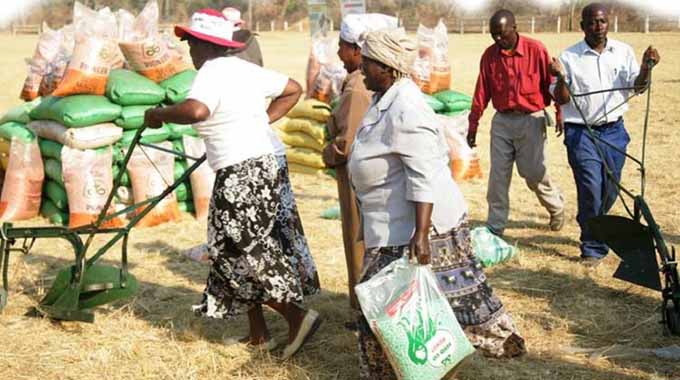‘Contract farming key to increased output’

Africa Moyo Senior Business Reporter
The country has been called upon to ramp up contract farming for various crops such as tobacco, wheat and soya bean, not only to boost output, but also to save the much-needed foreign currency. This was said by Bullion Leaf Zimbabwe managing director Persistence Gwanyanya yesterday.
Zimbabwe is in the grip of biting foreign currency shortages and is largely relying on mining (gold) and agriculture (tobacco) for forex to reduce shortages of key imports such as fuel, cooking oil raw material and wheat.
Mr Gwanyanya said it was crucial for tobacco, wheat and soya bean to get more support mainly through contract farming, if output was to increase and shore up forex reserves.
“There is need for contract farming initiatives to be widened for increased production of agriculture produce, which is key in providing raw materials in the manufacturing sector,” said Mr Gwanyanya.
“Contract farming is good for both the raw material producers and their off takers because the former is guaranteed of funding for the inputs as well as the market for their produce, while the latter is assured of supply of the raw material.
“In the face of increased de-risking by banks ostensibly due to high grower finance risk, contract farming is the way to go. Through this system, issues such as low productivity and therefore uncompetitive price for final product can be addressed through investment in farm mechanisation such as irrigation equipment.”
Tobacco output has been commendably increasing in the last few years benefiting from contract farming.
In 2008, tobacco output slumped to 48 million kg before rising to 271 million kg in 2014 and 253 million kg last year.
The country generated $730 million from tobacco exports last, which helped in stabilising the foreign currency gaps.
But low production of wheat and soya bean, key ingredients in bread and cooking oil making, respectively, have resulted in considerable foreign currency leakages as the country seeks to ensure availability of the popular products.
Imports of cooking oil raw material require about $20 million per month, when the country can grow the crop and save money. About US$85 million is spent on wheat imports per annum.
Mr Gwanyanya said in the face of “increased foreign currency challenges, it’s in the best interest of bread and cooking oil manufacturers to support local production of the required raw material”.
“However, Government should also support these contract farming initiatives through its temporary protectionism,” said Mr Gwanyanya.
Last week, Oil Expressers Association of Zimbabwe chairman Busisa Moyo said their members are now involved in “contract growing and soyabean promotion activities”.
Cooking oil makers such as Pure Oil Industries, Surface Wilmar, United Refineries Limited (URL) and Willowton, are all into soya bean contract farming, but there is still scope for them to increase capacity.
Grain Millers Association of Zimbabwe (GMAZ) national chairman Tafadzwa Musarara said members are meeting at the end of next month for an annual general meeting and “wheat contract farming is going to be on top of the agenda”.
Meanwhile, Bullion Leaf Zimbabwe intends to operate a “contract floor” for tobacco this year, where it would contract about 1 000 farmers under sales contract. Last year, the company only bought 400 000kg of tobacco from the auction floors.
“Our intention is to invest not less than $20 million in the project and we are working with our financial partners to finalise the financial package for this 2019 /2020 farming season.
“Having realised the challenges to procure inputs mainly due to forex shortages, Bullion Leaf has expanded its scope of business to include procurement of agriculture inputs and the company is going to ride on its trade finance structures to procure these inputs.
“We have worked well with our financiers and endeavour to strengthen our relationship with them because they are also bringing the market, which gives us competitive edge in the tobacco business,” said Mr Gwanyanya.








Comments